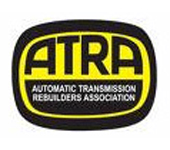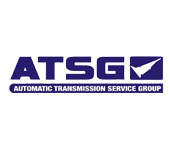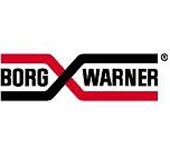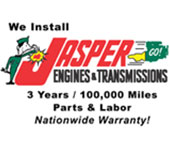817-446-7295 or 682-321-7117 | 2921 S Cooper St #101 Arlington, TX 76015
AUTONET TV
Archive for February 2025Rubber Match (Tire Replacement)Posted February 23, 2025 3:10 AMA set of new tires isn't probably high on anyone's list of exciting purchases. But since your life is literally riding on them, it's probably a good idea to know when it's time for you to buy new ones. If you've been feeling your vehicle slipping more in wet weather or it takes a longer distance to stop, those are a couple of signs you may need new rubber all around. Here's how to make your decision. First thing to do is look at your tires. The surface of the tire that contacts the road is the tread. When that tire was new, the tread was deep (the grooves in the rubber that provide traction). If they're starting to look somewhat smooth, you have a seriously worn tire that definitely needs replacing. Bring your vehicle in for us to look at your tires and we can check your tread with a tread gauge. Also look at the sides of your tires. If they have cuts or cracks in them, or if you see signs of bulges or scrapes made by hitting curbs or potholes, those could be signs of serious damage. Keep an eye on your tire pressure monitors. If you notice one or more of your tires showing frequent pressure changes, that needs to be checked out. One other thing you probably didn't know is that your tires all have birthdays, and they're printed on each sidewall. When you bring your vehicle in for us to inspect your tires, we can tell you how old they are. That's important because rubber deteriorates with age, even if they don’t have that many miles on them. Tire manufacturers recommend replacing tires when they reach a certain age, usually from six to ten years old. Now the question is, which tires should you buy? That's one for your service adviser who can recommend replacements based on your driving style, the model of vehicle you own, where you drive most often, and other factors. Oh, and if you want your new set of tires to last as long as possible, remember to have them rotated regularly, keep the right pressure, and don't drive aggressively. Westmoreland Transmissions The Right Oil for the Season (Engine Oil Viscosity)Posted February 16, 2025 3:09 AMAs the temperatures plunge, certain types of engine oil may not flow as easily as they did when it was warmer. Makes sense, doesn't it? Just like molasses gets thicker as the temperature goes down, engine oil does the same thing. So, maybe you're wondering if you have to change your oil as the seasons change so it's just the right thickness to lubricate your engine parts. How well engine oil flows is called its viscosity. There are different types of oil—some that have just one viscosity and others called "multigrade" oils. Here's the difference. A single viscosity oil will flow better when it's hot but not as well when it's cold. A multigrade oil is engineered so that its flow properties at cold temperatures are different than they are at warm temperatures. In other words, a multigrade oil can start out in colder temperatures acting like a thinner oil and then behave like a thicker oil when it's warm. That's a pretty cool trick and it's why multigrade engine oil is used in nearly all vehicles. Your vehicle's manufacturer has the correct viscosity of oil for your particular model included in the owner's manual. Another choice you have to make when it comes to engine oil is whether you use conventional oil, synthetic oil or a blend of the two. Synthetic oils have some advantages over conventional, such as resisting breakdown better and withstanding higher temperatures. Check with your service advisor to see which viscosity and type of oil is recommended for your vehicle. It's important that in cold weather, the oil flows through your engine at the right thickness so that parts are being properly lubricated. That will make sure you'll get good fuel economy and performance, no matter what the temperature is.
Round and Round (Wheel Balancing)Posted February 9, 2025 3:08 AMIn a perfect world, all wheels and tires would be perfectly round and weigh exactly the same at every point of the wheel. Unfortunately, they're not, and if they're out of balance, they can reduce the lifespan of your tires, make your vehicle shake like a carnival ride, and maybe even damage a few suspension parts along the way. You don't want that! Wheel balancing, sometimes known as tire balancing, is a process by which a technician makes sure your tire/wheel assembly has evenly distributed weight. If it isn't, it can give your ride bad vibrations. If you feel your vehicle's steering wheel shaking, it can mean unbalanced wheels in the front. If you can feel a vibration in your seats, it could be unbalanced rear wheels. In addition to your vehicle vibrating at higher speeds, there are other signs that your wheels are out of balance. You may see uneven tread wear, or you may notice you aren't getting the kind of fuel economy you used to. When you experience these problems, bring your vehicle in, and we can put your wheels on a machine designed to detect any imbalance. The technician will start your wheels spinning, and a computer will determine how much weight is needed where. Then, the technician can add small weights on the inside or outside of your wheel rim to precisely balance out the uneven weight. When the wheel is balanced correctly, it will spin evenly and smoothly. Sometimes your vehicle will hit a pothole or object in the road that dislodges one of those weights, which can throw that wheel out of balance again. If so, you'll have to bring it in to have that corrected Some drivers confuse wheel balancing with wheel alignment. Alignment is making sure the wheels are perpendicular to the road and parallel with each other. Sometimes your vehicle will need both balancing and alignment done at the same time. No vibrations are good vibrations when it comes to your wheels. Bring your vehicle to us, and we'll perform a balancing act to keep your vehicle riding smoothly down the road. Westmoreland Transmissions Stopping "Brake" Downs (Brake Pad Replacement)Posted February 2, 2025 3:08 AMIf someone tells you to put the brakes on something, you know it means stop. And stopping is one of the most important safety maneuvers you can do in any vehicle. That means your brakes have to work properly. Let's face it. You stop dozens of times every time you drive. And over time, that takes its toll on your brakes. Friction is what stops your vehicle. Most newer vehicles have disc brakes, and the parts that wear out the fastest are those that rub against each other every time you stop, the rotors and the pads. The rotors are discs that rotate with the wheels, and the pads are removable surfaces that make contact with the rotors to slow or stop your vehicle. Bits of both wear off each time you stop, and when enough of either (or both) lose too much material, your brakes become unable to safely slow or stop your vehicle. The pads usually are the parts that wear out first. Signs that your brakes might be getting worn are:
If you notice any of these, bring your car to us so we can have a technician inspect your brakes. Most brake pads have a wear indicator that indicates it's time they should be replaced. The technician who is checking things out will also look at your rotors for wear, as well as other brake system components. With regular inspections and maintenance, you'll be sure that when you need to stop, your vehicle will be up to the task. Westmoreland Transmissions Stopping "Brake" Downs (Brake Pad Replacement)Posted February 2, 2025 3:08 AMIf someone tells you to put the brakes on something, you know it means stop. And stopping is one of the most important safety maneuvers you can do in any vehicle. That means your brakes have to work properly. Let's face it. You stop dozens of times every time you drive. And over time, that takes its toll on your brakes. Friction is what stops your vehicle. Most newer vehicles have disc brakes, and the parts that wear out the fastest are those that rub against each other every time you stop, the rotors and the pads. The rotors are discs that rotate with the wheels, and the pads are removable surfaces that make contact with the rotors to slow or stop your vehicle. Bits of both wear off each time you stop, and when enough of either (or both) lose too much material, your brakes become unable to safely slow or stop your vehicle. The pads usually are the parts that wear out first. Signs that your brakes might be getting worn are:
If you notice any of these, bring your car to us so we can have a technician inspect your brakes. Most brake pads have a wear indicator that indicates it's time they should be replaced. The technician who is checking things out will also look at your rotors for wear, as well as other brake system components. With regular inspections and maintenance, you'll be sure that when you need to stop, your vehicle will be up to the task. Westmoreland Transmissions | ||
SearchArchiveApril 2018 (16)May 2018 (5) June 2018 (4) July 2018 (5) August 2018 (4) September 2018 (5) October 2018 (4) November 2018 (4) December 2018 (5) January 2019 (5) February 2019 (4) March 2019 (5) April 2019 (4) May 2019 (4) June 2019 (5) July 2019 (4) August 2019 (4) September 2019 (5) October 2019 (4) November 2019 (4) December 2019 (5) January 2020 (5) February 2020 (4) March 2020 (5) April 2020 (4) May 2020 (5) June 2020 (4) July 2020 (4) August 2020 (5) September 2020 (4) October 2020 (4) November 2020 (5) December 2020 (4) January 2021 (6) February 2021 (4) March 2021 (4) April 2021 (4) May 2021 (5) June 2021 (4) July 2021 (4) August 2021 (5) September 2021 (4) October 2021 (5) November 2021 (4) December 2021 (4) January 2022 (6) February 2022 (4) March 2022 (4) April 2022 (4) May 2022 (5) June 2022 (4) July 2022 (5) August 2022 (4) September 2022 (4) October 2022 (5) November 2022 (4) December 2022 (4) January 2023 (5) February 2023 (4) March 2023 (4) April 2023 (5) May 2023 (4) June 2023 (4) July 2023 (5) August 2023 (4) September 2023 (4) October 2023 (5) November 2023 (4) December 2023 (4) January 2024 (5) February 2024 (4) March 2024 (5) April 2024 (4) May 2024 (4) June 2024 (5) July 2024 (4) August 2024 (4) September 2024 (5) October 2024 (4) November 2024 (4) December 2024 (5) January 2025 (4) February 2025 (4) March 2025 (5) April 2025 (2) | CategoriesWhat Customers Should Know (42)Steering (7)Maintenance (8)Fuel Economy (4)Keys to a long lasting vehicle (2)Check Engine Light (2)Air Conditioning (8)Battery (8)Auto Safety (4)Tires and Wheels (2)Transmission (3)Alternator (2)Fuel Saving Tip: Slow Down (2)Shocks & Struts (3)Fluids (2)Automotive News (1)Winter Prep (2)Brakes (10)Older Vehicles (1)Cooling System (4)Service Intervals (1)Drive Train (2)Oil Change (5)Service Standards (1)Windshield Wipers (2)Headlamps (2)Winter Tires (1)Exhaust (5)Customer Detective Work (1)Fuel System (1)Tires (7)Alignment (3)Tire Rotation and Balancing (2)Transfer Case Service (1)Suspension (1)Safety (2)TPMS (1)Inspection (2)Timing Belt (2)Shocks and Struts (1)Brake Service (1)Spark Plugs (1) | |
Testimonials
Jacob Ouellette, 04/04/2025
Brought my 2004 Dodge Ram 3500 to them after having a horrible experience at a different shop. The professionalism and quality of work the two techs do is VERY hard to find nowadays at other shops. They replaced my rear main and release bearing in just a few hours. They keep their shop very clean, cleaner than most shops I have been to. The owners are some of the kindest and caring people we have met in the area. They go above and beyond to make sure their customers are taken care of and happy. I haven't had an experience this great at a shop in a long time if not ever. This is the only shop I'll bring my vehicles to in the future. Bob (the owner) is very honest and fair to his customers.














